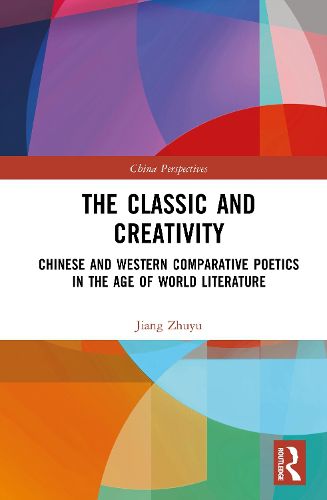Readings Newsletter
Become a Readings Member to make your shopping experience even easier.
Sign in or sign up for free!
You’re not far away from qualifying for FREE standard shipping within Australia
You’ve qualified for FREE standard shipping within Australia
The cart is loading…






This book explores the complex, dialectical interplay between the classic and creativity through a unique comparative lens that bridges Chinese and Western literary traditions.
The interplay between the classic and creativity has been a fundamental question in literary criticism, although readers may be more familiar with discussions from the Western literary tradition, such as T. S. Eliot's seminal essay "Tradition and the Individual Talent". In this comparative study, the author examines the parallel discussions in both Chinese and Western literary traditions, highlighting the inherently dialectical relationship between classics and creativity. She introduces the rich traditions of poetry and poetics from ancient China to modern times; equally illuminating is her commentary on Western literary critics such as Alexander Pope, William Wordsworth, T. S. Eliot, and Oscar Wilde. Her engagement with literary works such as Shakespeare's The Tempest and The Book of Poetry, and with literary practices such as adaptation and commentary, is also remarkable, as she addresses the contemporary challenges of studying the classics in an age of world literature.
Clear and accessible, this work in East-West comparative poetics will be valuable to scholars and students of literary theory, comparative literature, and world literature.
$9.00 standard shipping within Australia
FREE standard shipping within Australia for orders over $100.00
Express & International shipping calculated at checkout
This book explores the complex, dialectical interplay between the classic and creativity through a unique comparative lens that bridges Chinese and Western literary traditions.
The interplay between the classic and creativity has been a fundamental question in literary criticism, although readers may be more familiar with discussions from the Western literary tradition, such as T. S. Eliot's seminal essay "Tradition and the Individual Talent". In this comparative study, the author examines the parallel discussions in both Chinese and Western literary traditions, highlighting the inherently dialectical relationship between classics and creativity. She introduces the rich traditions of poetry and poetics from ancient China to modern times; equally illuminating is her commentary on Western literary critics such as Alexander Pope, William Wordsworth, T. S. Eliot, and Oscar Wilde. Her engagement with literary works such as Shakespeare's The Tempest and The Book of Poetry, and with literary practices such as adaptation and commentary, is also remarkable, as she addresses the contemporary challenges of studying the classics in an age of world literature.
Clear and accessible, this work in East-West comparative poetics will be valuable to scholars and students of literary theory, comparative literature, and world literature.